Curious about how drones are being utilized indoors within the chemical industry? Here’s a peek into how these innovative tools are making waves.
The primary application involves collecting visual data remotely during internal inspections. Below, we’ll explore various use cases for indoor drones in this sector, including:
- Key applications for drones in chemical facilities
- Real-world case studies showcasing their impact
Let’s dive deeper into some of the critical areas where indoor drones are proving invaluable.
### Key Applications for Drones in Chemical Facilities
Indoor drones are increasingly being deployed across several key areas in chemical plants to ensure safety and efficiency. These include:
#### PIPE RACKS, CABLES, AND CONDUITS
Imagine navigating through the maze of pipes, cables, and conduits within a production facility. Drones equipped with high-resolution cameras can now fly through these tight spaces to assess the integrity of welds and detect any signs of leaks or structural damage. This not only saves time but also reduces the risk for human inspectors.
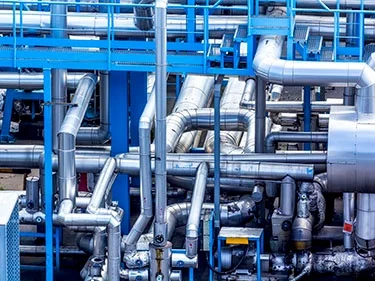
*Image Source: Drone inspection of pipe racks*
#### FIBERGLASS STORAGE TANKS
For tanks containing corrosive substances like acids, maintaining their structural integrity is paramount. Drones are now being used to inspect the walls and welds of fiberglass tanks, ensuring they remain safe and free from cracks or leaks.
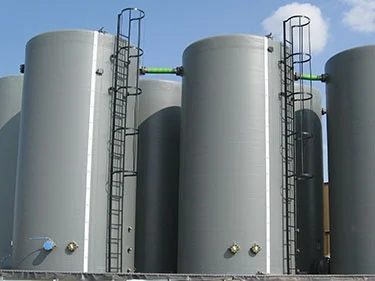
*Image Source: Drone inspection of fiberglass storage tanks*
#### SUCTION DUCTS
Inside suction ducts, drones can traverse from bottom to top, providing detailed images of the interior. This helps inspectors identify blockages or product buildup, ensuring smooth operations.
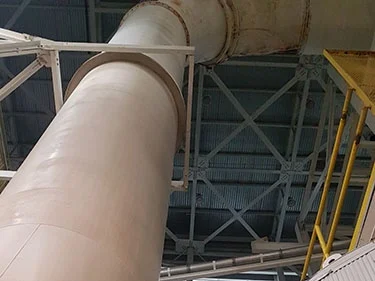
*Image Source: Drone inspection of suction ducts*
#### STORAGE SILOS AND BINS
Ensuring cleanliness and proper inventory management in storage silos is crucial. Drones can assess the level of remaining product and check for any residue left behind after cleaning, optimizing operational efficiency.
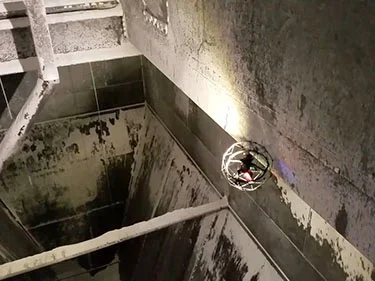
*Image Source: Drone inspection of storage silos*
#### FERMENTER TANKS
In enzyme production facilities, drones are used to inspect fermenter tanks, focusing on the condition of the shaft and blades. This systematic approach enhances batch quality and ensures consistent performance.
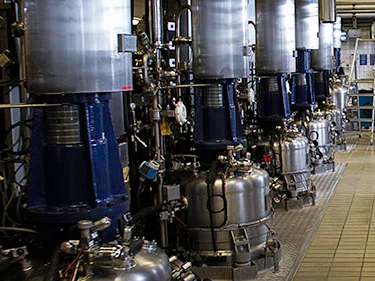
*Image Source: Drone inspection of fermenter tanks*
#### PRESSURE VESSELS AND STORAGE TANKS
Decommissioned pressure vessels and storage tanks require thorough inspections to ensure they meet safety standards before disposal or repurposing. Drones provide comprehensive visual data to aid in these assessments.
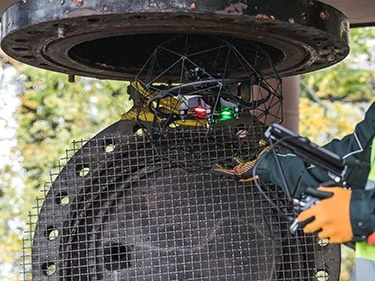
*Image Source: Drone inspection of pressure vessels*
#### HEAT EXCHANGERS
Clogging in heat exchanger tubes can severely impact plant efficiency. Drones are now used to detect such issues early, allowing for timely maintenance and preventing costly downtime.
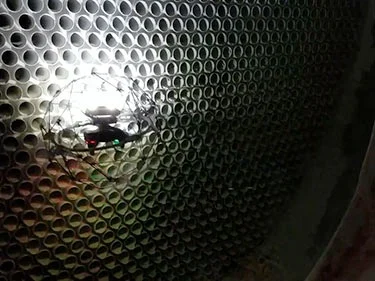
*Image Source: Drone inspection of heat exchangers*
### Case Studies: Real-World Impact
To understand the practical implications, let’s look at some real-world examples.
#### Case Study 1: Hydrogen Reformer Inspection
At a challenging hydrogen reformer site, an inspector tried out Flyability’s latest software, Inspector 3.0. The results were impressive—inspectors found it easier than ever to revisit areas of concern and document defects accurately. [Read the full case study here](#).
#### Case Study 2: French Fertilizer Plant Evaluation
Personnel at a Yara-owned fertilizer plant tested the Elios 2 drone and were amazed by its ability to capture crystal-clear images of hard-to-reach areas. The clarity was so remarkable that operators felt as though they were standing right there! [Read the full case study here](#).
These case studies highlight the transformative power of indoor drones in the chemical industry. From improving safety to boosting operational efficiency, these innovations are reshaping how businesses approach inspections and maintenance.
If you’re intrigued by the potential of drones in your own facility, consider exploring their capabilities further. The future of industrial inspection is here—and it’s taking flight.
Small-sized road rollers are also called walk-behind rollers. At present, small-sized road rollers produced in China are divided into three types: walk-behind single-wheel rollers; walk-behind two-wheel rollers; and ride-on rollers. Engines are divided into diesel engines and gasoline engines
We are a real manufacturer, looking for agents all over the world
Double Drum Rollers,Double Drum Vibratory Tandem Rollers,Double Drum Road Rollers,Double Drum Road Roller Compact Machine
Shandong Davoo Machinery Co., Ltd. , https://www.sddigger.com
